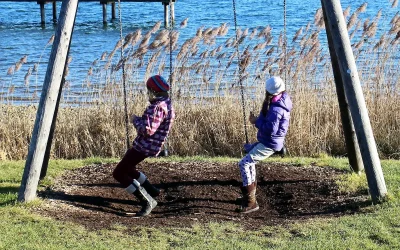Many parents struggle to help children comprehend what’s going on in the world—in ways that are age-appropriate and that they can understand—including how to manage feelings, find a sense of calm, and develop coping skills. Here are some practical strategies for parents to help children who may experience fear, dismay, vulnerability, or confusion during challenging times.
Provide a safe, comforting, and dependable environment
This might involve increasing communication with teachers, grandparents, and other family members; making a concerted effort to adhere to normal routines insofar as possible (including play and day-to-day activities); and providing quiet times during which to chat, sit or read together, to relax, or hug. Be there when you say you will be.
Stay composed, and be attentive to children’s questions and concerns
Don’t dismiss children’s desires to learn about things or to express themselves. Rather, listen carefully and respectfully and offer support—such as offering to find out more about what’s being done to alleviate matters. For example, technological advances; preventive and collaborative measures; the role of first responders; the importance of kindness; and the positive impact of supportive relationships. Be honest when answering questions but avoid complexities, and provide only as much information as a child can handle. And, set limits on exposure to media. It’s counterproductive to focus too much on troubling circumstances.
First things first
Parents should strive to take stock of their own feelings, and to get their anxieties and emotional responses in check. (As per the airline rule about putting on your own oxygen mask before affixing your child’s.) This means developing coping strategies—such as strengthening support networks, and using trusted sources of information—and then demonstrating learned strategies to children.
Pay heed to signs of undue stress
Warning signs or “red flags” might include changes in a child’s sleep patterns, eating habits, health, or activity levels; academic decline; or mood swings. Seek professional help, if needed, from someone with expertise in children’s emotional or …








